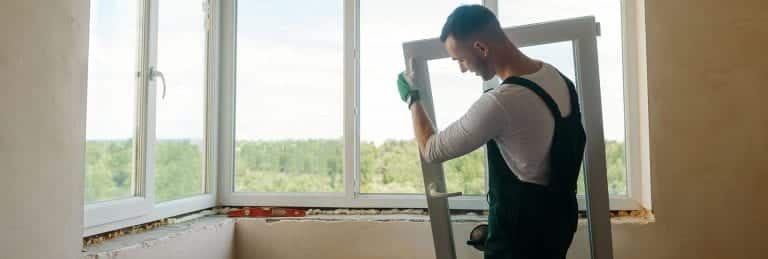Why Shower Curtains Are Out
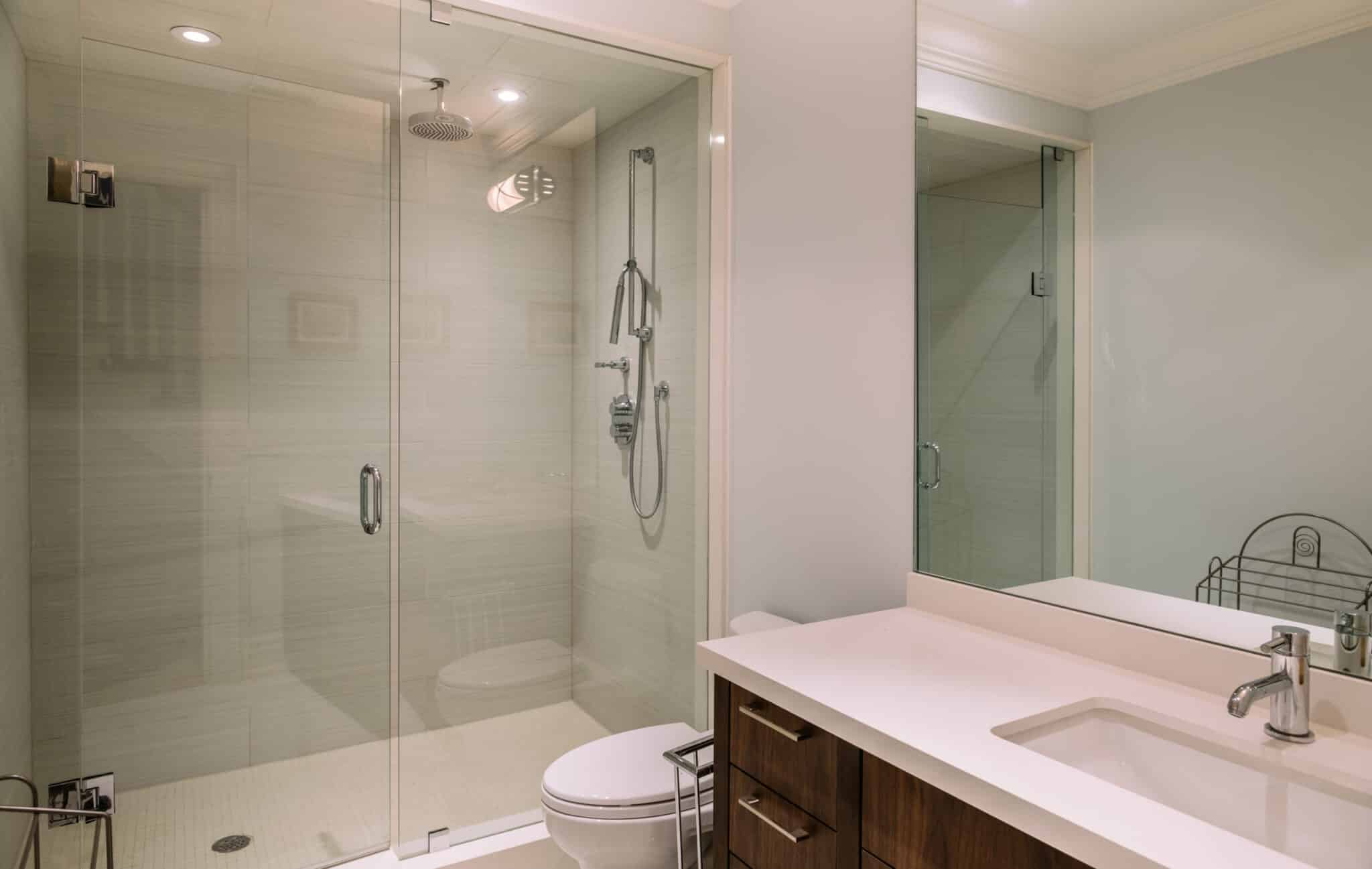
A shower rod and curtain are cheap and easy options for a basic bathroom setup: you go to the store and buy a tension rod, some hooks, a curtain, and … voila! You have a functional shower.
But, as you well know, the cheap option isn’t always the best one when it comes to furnishing your home.
The downsides of shower curtains are numerous: they’re difficult to clean, can contain harmful chemicals, and are certainly not the most aesthetically pleasing option. Plus, if you take a simple scroll on Pinterest, you can find wow worthy glass shower enclosures to help you decide to ditch the shower curtains.
In the decade-long bathroom battle royale between shower curtain vs glass door, glass is STILL the clear winner. Read on to discover how glass might just be the game-changer you’ve been looking for when it comes to updating your bathroom!
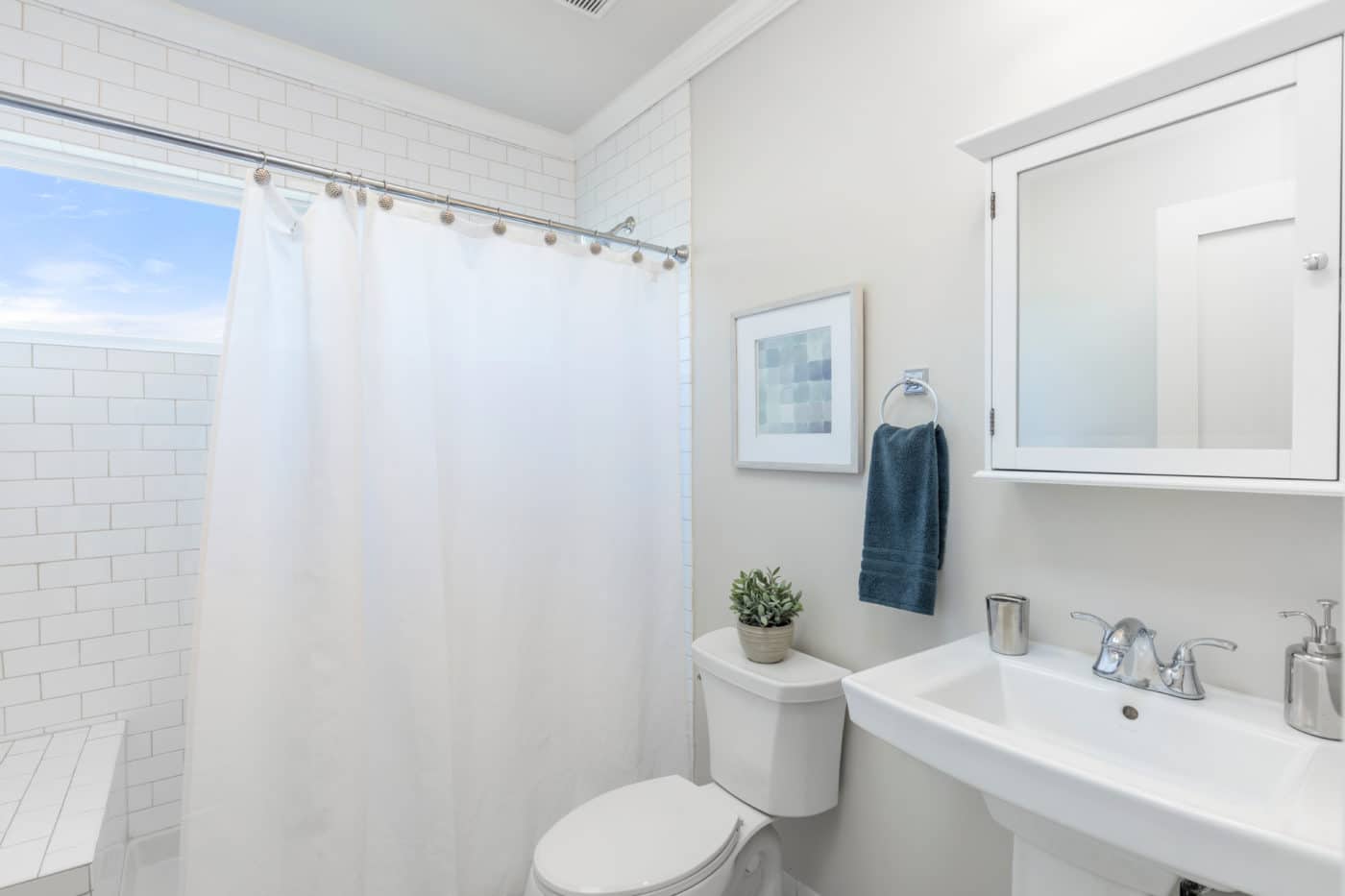
1. Cleanliness
Shower curtains are a bad idea, first and foremost, because of how difficult they are to clean. Often, they’re noticeable:
- Discolored
- Grimy
- Smelly
While they can be washed, shower curtains are not as easy as glass to keep clean and they often don’t properly seal the bathing area.
Germs and Bacteria
One recent study indicates that shower curtains have the highest bacterial count of any bathroom surface. That’s right, shower curtains on average are dirtier and contain more potentially harmful bacteria than your shower floor, your bathroom door handle, and even your toilet seat!
This bacteria forms on curtains thanks to what we do inside the shower and in the bathroom more broadly. Invisible spray from the sink and even the toilet (sometimes called the “toilet plume”) distributes germs around the bathroom, and they can linger on surfaces like shower curtains, especially since they’re porous.
This finding is downright gross, but it also means that the very place you go to clean yourself is not as clean as you thought if it’s enclosed by a shower curtain, which kind of defeats the point.
Mold and Mildew
Even though it’s troubling to imagine the bacterial colony currently thriving on your shower curtain, a growth of germs is not automatically dangerous. For example, even if E. coli was found on your curtain, it wouldn’t make you sick because it has to be ingested by humans to cause infection.
However, mold and mildew growth can be the cause for legitimate concern. Bathrooms, in general, are common breeding grounds for mold and mildew because they are so often damp and humid.
Mold will appear:
- Black, red, or green in color
- Fuzzy or wooly in texture
Mildew will look:
- White, grey, or yellow in color
- Slimy in texture
Mold and mildew exposure can cause allergy-like symptoms, aggravate asthma, and even result in respiratory infection or disease.
Glass: Non-Porous and Easy to Clean!
In contrast to shower curtains, glass doors and a glass shower enclosure are very easy to keep clean over the long haul.
Glass is non-porous, meaning that it will not absorb moisture. And soap scum, build-up, germs, and mold or mildew can be cleaned easily as frequently as desired.
In addition, proper caulking around the edges of glass shower doors, enclosures, or the glass partition can ensure that there is virtually no water leakage, which not only keeps your bathroom tidier but also prevents mold and mildew build-up.
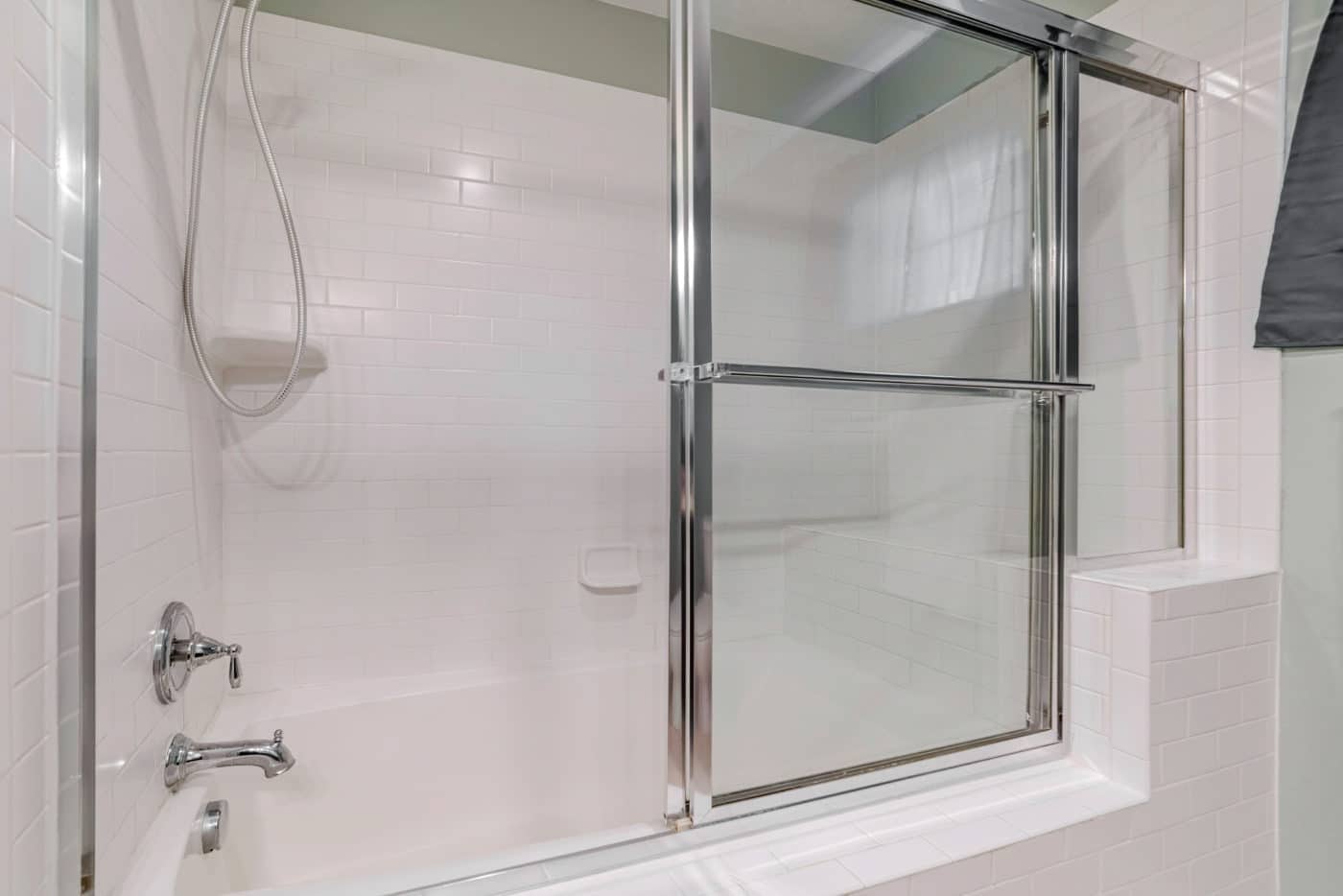
2. Harmful Chemicals
Because shower curtains (or at least their linings) are made of plastic, they often contain harmful materials. Specifically, many curtains are made with polyvinyl chloride, more commonly known as PVC.
This chemical compound has been found to release phthalates, organotin, and other organic compounds, some of which are considered hazardous air pollutants by the Environmental Protection Agency.
Those who would rather forgo the risk of harmful chemicals in their shower curtains and instead only breathe in the soothing aromas of bathing products may want to make the switch to glass shower enclosures.
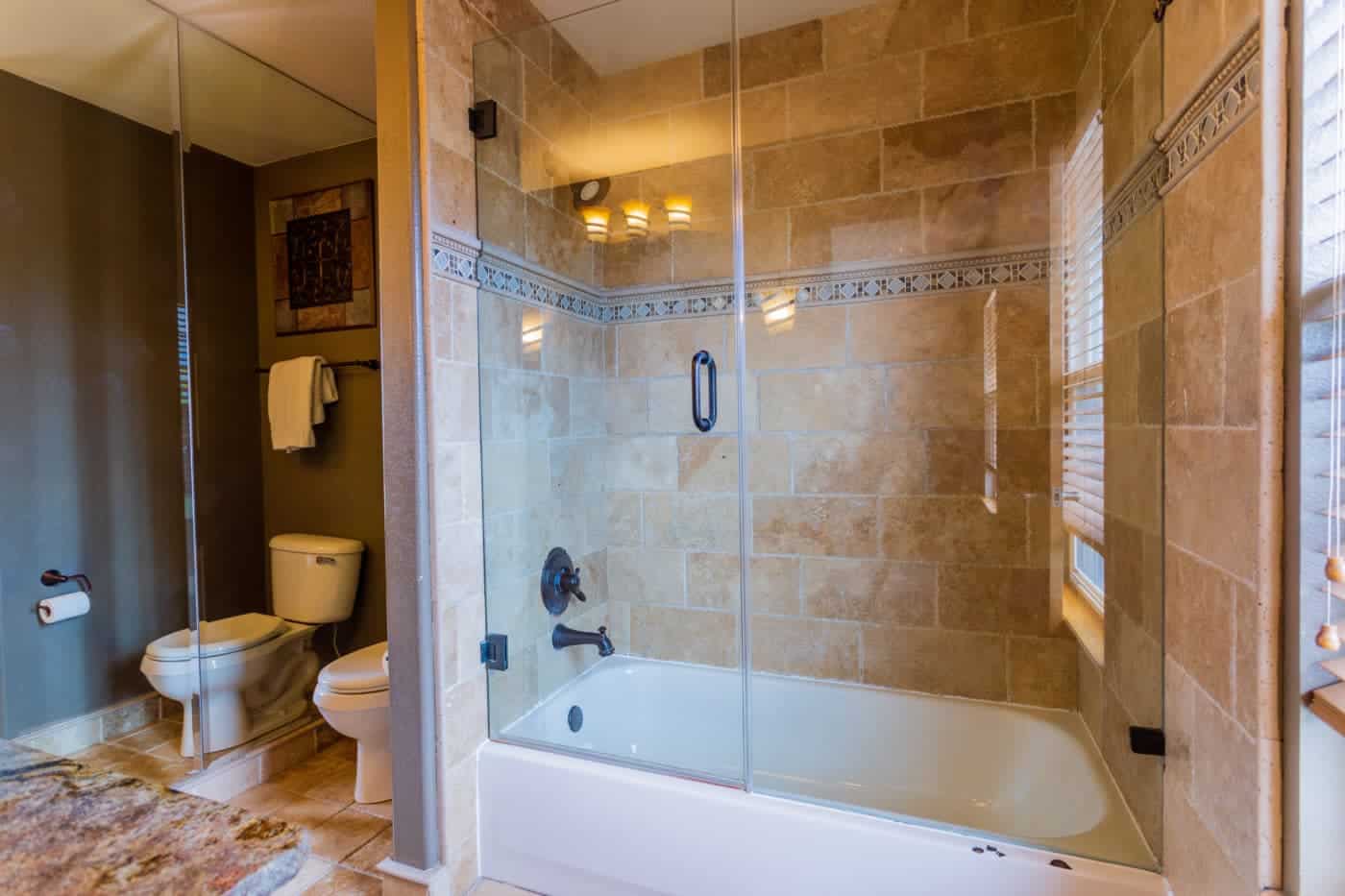
3. Limited Customization
Sure, you can buy shower curtains with any color, design, or picture imaginable. This is especially true today with the advent of the internet and online shopping. But shower curtains are not fully customizable in an interior design sense: they all require a curtain rod and hooks, and they all function in the same way.
Shower curtains, therefore, limit bathroom shower design options. And frankly, a shower curtain is not the most sophisticated or sleek look. By contrast, glass shower doors and a glass enclosure are highly customizable and far more aesthetically pleasing.
Here are four common types to know about when deciding between a shower curtain vs. a glass door:
- A sliding glass door – The most common type of glass shower door, these slide side-to-side on a track on the edge of the shower or the tub to allow for an enclosed shower. Both might be movable, or one might be fixed. This is the best option for bath/shower combinations that still provide all of the benefits of glass.
- Frameless glass door – Made of expensive, heavy glass, this glass door does not have a frame, which allows you to see into the shower as if there were no door at all. The frameless look is modern and minimalist and could be particularly well-suited for showers with impressive tile work.
- Semi-frameless glass door – A more affordable alternative to the frameless door, this type has better durability with a partial frame, although it retains the sleek aesthetic of the frameless look.
- Pivot glass door – Attached to a hinge in the floor that allows the door to swing open and closed, this type highlights the beauty of the frameless shower door in a trackless and invisible hinge option. Because of the space required to open the door completely, pivot doors are only functional within larger bathrooms.
- Tub Enclosure – Also known as a tub surround, is basically a glass shower curtain. This is a glass wall or glass fixture that extends from the tub to the ceiling. This keeps your shower, tub combo stay open and fresh.
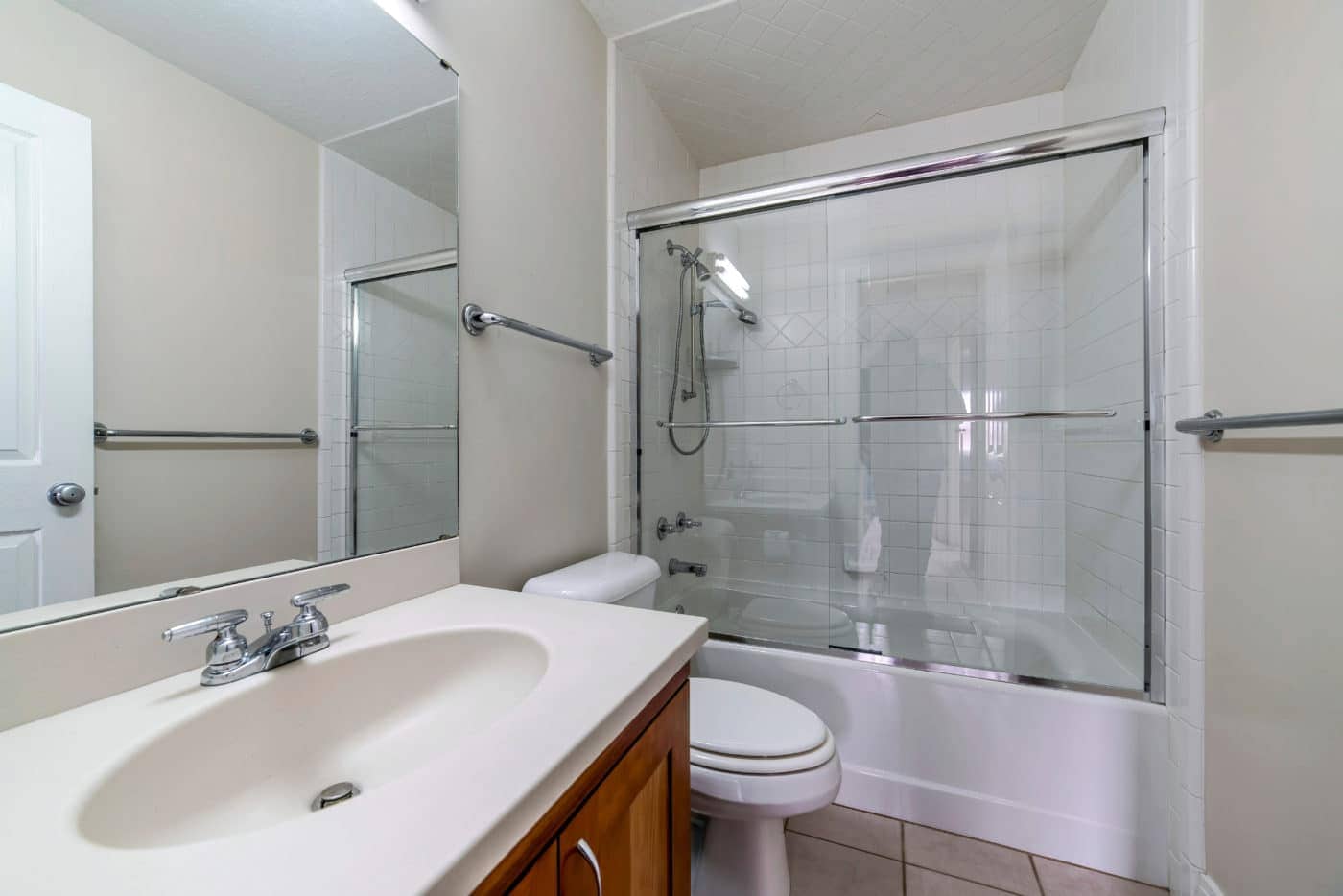
The Glass Guru: Your Guide to a Glass Shower
It’s easy to see why shower curtains are a bad idea for your bathroom: they’re dirty, they potentially contain chemicals, and they are not as aesthetically pleasing or as customizable as other available options.
If you are beginning to consider tossing out your shower curtain and replacing it with a dazzling new glass tub enclosure, look no further than The Glass Guru. We are glass professionals who can help you choose the best option to fit your home, budget, and design needs.








